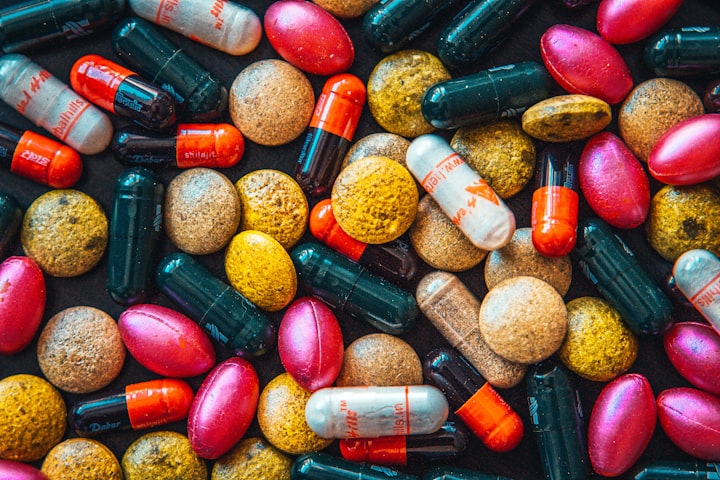Maximizing the Effectiveness of Antibiotics in Chronic Prostatitis Treatment: Three Essential Strategies for Achieving Full Recovery
How to maximize the effectiveness of antibiotics in chronic prostatitis treatment?

Chronic prostatitis presents a therapeutic challenge, with no universal cure-all available. Patients often find that while medications can provide temporary relief, symptoms frequently return post-treatment. This recurring issue is partly due to the prostate gland's unique structure, which impedes the penetration of standard antibiotics, thus diminishing their effectiveness.
To enhance the selection of antibiotics, it is crucial to conduct a bacterial culture of prostate fluid to pinpoint the responsible pathogens and select drugs that demonstrate higher sensitivity to these bacteria.
Selecting the Right Antibiotics
Chronic prostatitis encompasses two primary types: chronic bacterial prostatitis and chronic non-bacterial prostatitis, with the latter accounting for approximately 90% of cases. Since chronic non-bacterial prostatitis lacks a definitive causative pathogen, antibiotics may not be necessary for its management.
Conversely, bacterial prostatitis necessitates antibiotic therapy, and a combination of drugs is often recommended to boost effectiveness. Achieving an effective drug concentration in the prostate's interstitial space is essential to thwart urinary tract infections and requires administering the full dosage of medication without premature discontinuation or dose reduction.
Escherichia coli is the most common pathogen in prostatitis cases, followed by less frequent pathogens such as Aspergillus, Pseudomonas aeruginosa, and Corynebacterium spp. In the absence of prostate fluid analysis, fluoroquinolones and minocycline antimicrobials are typically prescribed.
If the specific causative pathogen is unknown, broad-spectrum antibiotics are preferred. Subsequent to pathogenetic testing, physicians can tailor the antibiotic type and dosage.
Ensuring Antibiotic Efficacy
The successful outcome of antibiotic treatment for conditions such as chronic prostatitis is critically dependent on their careful and considered administration. It is of utmost importance that the antibiotics are prescribed at an optimal dosage and that the patient adheres to the full course of the treatment as recommended by healthcare professionals.
Any deviation from this, whether it be a reduction in the prescribed dosage or an abbreviation of the treatment's duration due to apprehensions regarding potential drug toxicity, adverse side effects, or individual lifestyle constraints, can precipitate a host of undesirable consequences. Such alterations in the treatment protocol may not only render the therapy ineffective but also contribute to the development of resistance among the pathogens, thereby exacerbating the risk of persistent or recurrent infections that become increasingly challenging to treat.
Combining antimicrobials can mitigate bacterial resistance and reduce toxicity or adverse effects, particularly in patients with multiple pathogens or those prone to drug-resistant strains. In cases of resistance, a multi-drug regimen is often considered.
Duration of Antibiotic Therapy
The consensus for bacterial prostatitis is a minimum of four weeks of antibiotic therapy. If there is no symptom improvement, the treatment should be halted; if there is improvement, the therapy should continue for an additional 2 to 4 weeks to ensure eradication of the pathogen. Post-treatment, a pathogenicity test is necessary to confirm the absence of the causative pathogens.
For acute prostatitis, the treatment duration is shorter compared to the prolonged course required for chronic prostatitis. For non-bacterial prostatitis, treatments such as alpha-blockers, botanicals, M-blockers, non-steroidal anti-inflammatory analgesics, and specific herbal medicines like Diuretic and Anti-inflammatory Pill are advised, typically for a duration exceeding three months. It is crucial not to cease medication prematurely to avoid recurrence and extended treatment periods.
Criteria for Prostatitis Cure
The cure of prostatitis is not determined by subjective belief or simplistic assertions but by specific criteria:
1. Sterile Pathogenetic Examination: Post-effective anti-infective treatment, specimens from the prostate gland or internal genital organs should not reveal any live pathogens associated with the disease.
2. Symptom Resolution: Treatment success should be evident through the disappearance or substantial alleviation of symptoms, typically noticeable after the third or fourth day of treatment.
3. Normal Laboratory Tests: Recovery from inflammatory damage should be reflected in normal laboratory test results, indicating the subsidence of the inflammatory response.
In summary, a strategic approach to antibiotic therapy, informed by pathogen sensitivity, appropriate dosing, and treatment duration, is essential for the effective management and potential cure of chronic prostatitis.
About the Creator
Amanda Chou
Looking to restore your life troubled by prostatitis, epididymitis, seminal vesiculitis and other male reproductive system diseases? Here are the resource to help you in this endeavor.






Comments
There are no comments for this story
Be the first to respond and start the conversation.